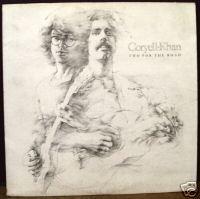
It was 1975. By then I had played guitar for about six years, four of them with various cover and progressive rock bands. I was playing all over Los Angeles, anywhere an underaged kid was allowed to play. I received praise for my skills from many more established artists and felt pretty cocksure of myself. I would frequently show up at jams and blow away the locals.
One evening I showed up at an open mic in Pasadena. Present were the usual suspects. A few Bob Dylan wannabes, a couple of Eagles and Jackson Browne cover duets, one guy who thought he was Frank Sinatra, a girl who perfectly mimicked Joni Mitchell and a quartet fronted by a Michael Franks sound alike. The evening droned on from one mediocre soft rock or jazz tune to another to polite applause.
My turn came and I decided to light it up. I sat down and blazed through a version of the Doobie Brothers’ “China Grove;” followed it up with an emotional rendition of Santana’s ”Europa”; and closed with a vamp of “Cry Me A River” that fell somewhere between Joe Cocker’s and Barney Kessel’s versions. I left the stage to enthusiastic applause from the audience as well as the awaiting performers. I thought I had blown everyone else away. I sat down for the rest of show near the mixing board and continually was approached by admirers.
The next performer, a slight, long-haired immaculately groomed gent, who looked about ten years older than me, took the stage. I had not seen him at any of the myriad of venues where I had played. He quietly sat down and started to play a faintly Spanish guitar piece while the murmur of my performance still reverberated throughout the room. The piece built and the audience quickly became quietly transfixed on this performer. The instrumental music soared as his fingers flew over the fretboard. I was amazed. The audience was enamoured and I was quickly forgotten.
With the completion of the first tune the audience burst into a standing ovation. The guitarist thanked the audience and then announced, “Here’s a medley of some of the dreck that accompanied my Dad's lyrics.” He launched into a quick medley of jazz improvised versions of "Let It Snow, Let It Snow," "Come Fly With Me," "It's Magic," and at least a half a dozen other songs that I knew but could not identify. The place erupted. He left the stage, without even giving his name, and came back to the mixing board and bantered with the sound engineer.
I turned to him and said, "That was truly amazing. Who’s your father and where did you learn to play like that?" He responded directly to me, "Thank you. That's nothing. This is just a warm up. I'm going on tour with Larry Coryell and we are going to record a live album." I looked at him with disbelief and sarcastically said, "Umm, okay, what's your name?" He stood up, picked up his guitar and started to walk toward the door, turned and looked at me and said, Khan, Steve Khan," and walked out the back door. I had no idea who he was and had a hard time believing he was going to tour and play with Larry Coryell.
By 1977 I had forgotten all about this encounter. I had moved to San Diego to attend college and had given up on the idea of being a professional musician. My roommate in the dorms, Bill, played bass in the college jazz band and tuba in the marching band. The dorms were full of Peter Frampton lovers as Frampton Comes Alive had just been released. You couldn't pass a student's room without hearing at least one of the tunes off the album. I quickly tired of it and started to look for new alternatives. One day Bill came back to the room excited about some new vinyl he had just picked out. He quickly ripped off the cellophane, pulled the disk out of the cover and sleeve, placed it on the platter and dropped the needle. Out of the speakers came a live version of an acoustic duet of a very familiar sounding jazzy Spanish guitar tune. It was incredible. The guitar duet work was astonishing. I raised my eyebrows, looked at Bill and stuttered, "Wow! Who is this? Let me see the cover."
Bill tossed the cover to me and excitedly exclaimed, "It's called Two For The Road and is Larry Coryell's new live album with some guy called . . ." We both said it at the same time "Steve Khan!" Bill looked at me and said, "How did you know that?" I told him I had fortuitously seen Khan two years before, had a short encounter with him, and he said he was going to tour with Coryell." Bill looked at me, squinted and hesitantly replied, "Ahh, sure. According to my jazz band instructor he's the son of the lyricist Sammy Cahn but changed the spelling of his name to get out from under his Dad's shadow."
We listened non-stop to Two For The Road, an incredible ground-breaking ten track rock jazz fusion recording. It is an album to which, even today, guitarists listen in awe. At the time of the recording jazz master Coryell was 33, at the top of his game and at his most inventive. Khan is clearly the student on the album at the ripe old age of 29. Yet, that is like saying Steve Vai is a student of Joe Satriani. Coryell and Khan both provide incredible acoustic guitar performances and, together, exceed the sum of their parts. Two For The Road is one of those cutting edge albums that holds up so well that you might think it was recently released. Then you realize it is 37 years old. As Steve Khan's Dad once wrote for Dean Martin, "Ain't That A Kick In The Head?"
- Old School

